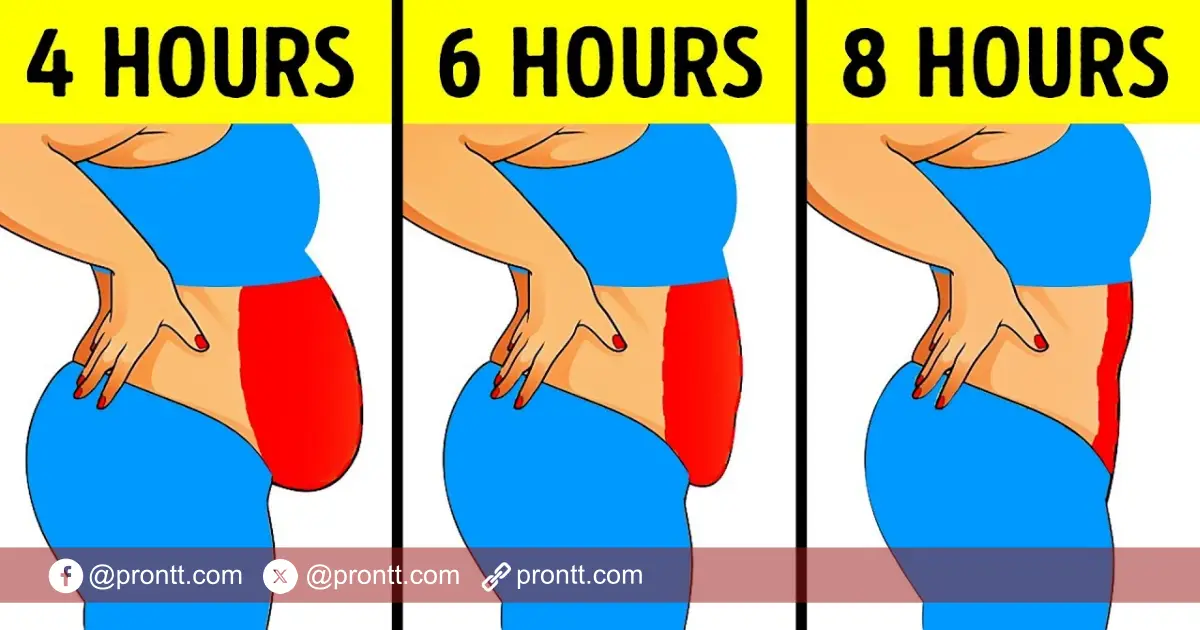10+ Best Life Insurance Companies in USA 2026 – Prontt.com, Nationwide sweeps the titles in Investopedia’s list of best life insurance companies, earning the top spot thanks to its great variety of products and features, rock-solid financial footing, and high customer satisfaction ratings. We also named Nationwide best in two other categories, but other insurers may still fit your needs better.
Life insurance is an important product that protects your loved ones financially after you die. But it’s complex, which is why Investopedia researched 70 criteria for 45 life insurance companies, including price, policy types and features, customer satisfaction, and much more before naming the best life insurers.
10 Best Life Insurance Companies for January 2026
- Best Overall, Best Children’s Life Insurance, Best for People Over 50: Nationwide
- Best Term Life Insurance: Banner by Legal & General
- Also Great for Children’s Life Insurance: Protective Life
- Cheapest Term Premiums: SBLI
- Best for Universal Life: Pacific Life
- Best Whole Life Insurance: Lafayette Life
- Also Great for Whole Life Insurance: MassMutual
- Best No-Medical-Exam Insurance: Penn Mutual
- Also Great for No-Medical Exam Life Insurance: Symetra
- Best for Financial Strength, Best for Customer Satisfaction: Thrivent
Best Life Insurance Companies in USA 2026
Nationwide

- Financial Strength Rating: A+
- Complaints: Much better than expected for company size
Best Overall
With a broad range of product types and features, very satisfied customers, no coverage limits for many policy types, and a stellar grade from credit rating agency AM Best, Nationwide is at the top of our list of the best life insurance companies. Its three living benefit riders—which come at no extra cost— also helped boost its overall score.
Best Life Insurance for Children
Nationwide is a great choice for anyone looking to insure a child. Reason #1: You can buy as large of a whole life policy as you like for a child. Reason #2: The child can take over the policy when they’re an adult. Reason #3: If you buy a child term rider on your own policy, the rider can cover them until they’re 22 and be made into a permanent life insurance policy for the child without a health exam.
Best Life Insurance for People Over 50
Many of the features that make Nationwide our favorite pick overall also propelled it to the top of our list of the best life insurance for people over 50. But it also scored well for this age group because you can buy up to $1.5 million in coverage without a medical exam and get an instant decision. And there’s no minimum age requirement for a final expense policy worth up to $50,000.
Pros
- Outstanding selection of product types
- Superior financial strength rating (A+)
- 3 living benefits included in many policies
- Stand-out child life insurance features
- Very few customer complaints to state regulators
Cons
- Doesn’t pay dividends on whole life policies
- Won’t sell term life to applicants over 70
- No live chat for customer service
- No way to start a claim online
Nationwide rises above competitors on a multitude of fronts. It has one of the widest product selections Investopedia saw among the 45 companies we surveyed. Ditto that for riders—only Ameritas and Brighthouse Financial offer as many. Nationwide’s riders include three free living benefits that let you use your death benefit while you’re alive if you develop a chronic, critical or terminal illness.
Customers generally like the company, lodging few complaints with state regulators and pushing it to No. 4 out of 22 companies in the 2024 J.D. Power U.S. Individual Life Insurance Study.
J.D. Power. “Life Insurers Miss the Mark on Clarity of Information and Personalization—Particularly Among Younger Customers, J.D. Power Finds.”
There are only a few things we found to not like. It doesn’t pay dividends on its whole life policies, so if you want that, you’d be better off looking for a mutual company such as Lafayette or MassMutual. And you can’t buy a term life insurance policy from Nationwide if you’re over 70.
Founded in 1925, Nationwide is based in Columbus, Ohio.
Policy Types & Riders
Available Policy Types
- Term life
- Whole life
- Children’s whole life
- Universal life
- Indexed universal life
- Variable universal life
- No-medical-exam life (term)
- Final expense
Available Riders
- Term conversion
- Child term
- Guaranteed insurability rider
- Waiver of premium
- Accidental death benefit
- Terminal illness
- Long-term care
- Chronic illness
- Critical illness
Banner by Legal & General

Low premiums and terms lasting up to 40 years helped propel Banner to the top of our list of best term life insurance providers. Many competitors don’t offer term life insurance that covers you for that long. The minimum death benefit is $100,000, and there is no maximum, so these policies are good for people with a wide range of coverage needs. You can renew a Banner term policy every year and convert it to a permanent life insurance plan with no additional health exam. And applying is easy, with an online quote and application process.
Many people choose term life insurance because the premiums are more affordable than permanent life insurance. That’s especially true of policies you get from Banner by Legal & General. Its premiums are some of the most competitive we found when gathering quotes for 45 life insurance providers. It’s also the only company besides Protective Life that offers 40-year term policies, which means they could last your entire working life. Most companies limit you to 30 years at most for term coverage.
Like Nationwide, Banner has a low incidence of consumer complaints and an impressive financial stability rating from AM Best.
But Banner’s selection of other products is disappointing. Universal life is the only other type of life insurance it sells, though that won’t matter much if you’re set on buying term insurance. The other factor to consider is that you won’t find many riders with which to customize your coverage.
Banner is based in Frederick, Maryland, and owned by Legal & General, which has been in business since 1836.
Protective Life

Protective’s child term rider is the best we found, so it’s possible to add superb protection for your children through your own life insurance policy.
Investopedia found Protective’s child term rider distinctive because it covers your children until they turn 25, and it’s transferable and convertible to a permanent policy such as whole life or universal life when they become adults.
However, child coverage is limited to this rider. Protective Life does not sell a standalone child’s whole life policy.
Beyond child coverage, Protective has a fine selection of policies and riders for adults. These include term policies for as long as 40 years and whole life policies with death benefits ranging from $1,000 to as high as you can qualify for. There is no maximum coverage limit.
Protective Life has been around since 1907 and has its headquarters in Birmingham, Alabama.
SBLI

SBLI not only has some of the lowest premiums for term life insurance, but it also has a strong record of customer satisfaction. On top of that, it lets you convert your term policy to permanent insurance without a medical exam, and that option is included for no extra cost.
For term life insurance at an affordable price, it’s hard to beat SBLI. It provided some of the lowest premiums Investopedia found when gathering quotes from 45 companies. You can get an individualized quote for yourself, apply for a term policy, and chat with a live representative all through the website. Customers seem happy with SBLI, lodging relatively few complaints with state regulators compared to the company’s size.
These qualities make SBLI great for cheap term insurance, but it’s not the best for permanent life insurance. SBLI doesn’t offer universal or variable universal life insurance and the dividend rate for its whole life insurance is low. Investopedia found the company’s rider selection on the skimpy side too.
SBLI’s headquarters is in Woburn, Massachusetts and it was founded in 1907.
Pacific Life

Pacific Life excels at universal life (UL) insurance, offering numerous policies across all the main types of UL (traditional universal, indexed universal, and variable universal). Death benefits can run as small as $25,000 and have virtually no top limit. You’ll find a lot of riders to choose from, including a child term rider available for UL policies.
Pacific Life is one of the few companies that sells universal life, indexed universal (IUL), and variable universal life insurance (VUL). Nationwide, Prudential, and John Hancock do as well, but they don’t offer as many different policy options for each type. In some markets, Pacific Life features two UL, four IUL, and five VUL products.
But these products are complex and Pacific Life doesn’t let you apply online. You’ll have to talk with an agent by phone or in person. And the company does not sell whole life insurance.
Based in Newport Beach, California, Pacific Life was founded in 1868.
Lafayette Life

Lafayette Life outscored rivals in the whole life department thanks to its broad range of whole life policies and riders (many included at no cost), and its high coverage limits. You can buy as large of a policy as you want (provided you can qualify based on your income).
With seven different whole life policies, Lafayette Life offers options to suit a variety of needs. There’s no limit on how large the death benefit can be, and we like that Lafayette has a lot of free riders, including those that let you use your coverage while you’re alive if you get a serious illness.
On the downside, Lafayette’s dividend rate is lower than that of competitors such as MassMutual and Guardian Life. You’ll also need to call the company or meet an agent in person to apply; there’s no online application.
Founded in 1905, Lafayette Life is headquartered in Cincinnati, Ohio.
MassMutual

MassMutual pays the highest whole life dividend rate to policyholders of the companies Investopedia researched. That means cash value grows faster than with whole life policies at competing insurers.
MassMutual scored slightly lower than Lafayette for our best whole life insurance list, but it was a close call. MassMutual beats Lafayette on a couple of fronts. Its dividend rate is the highest of all insurers on this list at 6.10%, and it offers whole life policies to people up to age 90. Only Thrivent and Guardian Life have age limits that are that high.
On the downside, you have to talk to an agent and take a medical exam to buy a MassMutual policy, and there are no same-day decisions.
MassMutual has called Springfield, Massachusetts, home since its founding in 1851.
Penn Mutual

If you want a substantial life insurance policy and don’t want to take a medical exam when you apply, Penn Mutual is the best provider. Its no-medical-exam policies can run up to $10 million—the highest amount we found in our research.
Penn Mutual’s cap on no-medical-exam coverage is double that of the next-highest limit we saw ($5 million from Nationwide or Symetra) and many orders of magnitude higher than competitors whose caps run as low as $25,000.
Whole life policyholders enjoy dividends, and at 5.75%, Penn Mutual’s dividend interest rate is among the highest of the companies Investopedia researched. Dividends are never guaranteed, but the company has paid them for 175 straight years, with a record $200 million of dividends paid in 2024.
Customers made few complaints to state regulators about Penn Mutual, according to the National Association of Insurance Commissioners (NAIC) Complaint Index.
Our main issue with Penn Mutual is that if you’re looking for a small no-exam final expense policy, you’ll have to look elsewhere. Penn Mutual doesn’t offer these types of policies. It also lacks online quotes and application features that many competitors have.
Symetra

Symetra has the second-highest coverage limit ($5 million) Investopedia dug up for life insurance policies you can apply for without taking a medical exam—and you could get approved in a matter of minutes.
Symetra is another great choice for no-medical-exam insurance, along with Penn Mutual. Its coverage limit is half as big as Penn Mutual’s but at $5 million, that’s still ample for many people. You must still qualify based on age, income, and medical records. But you can apply online, and Symetra can make coverage decisions in minutes.
Beyond no-exam term life insurance, Symetra’s product lineup is patchy. The company doesn’t sell whole life, final expense, or universal life insurance, though it does offer three indexed universal life policies and one variable universal policy. It has a few riders, but not nearly as many as a powerhouse like Nationwide.
Symetra was founded in 1957 and is based in Bellevue, Wash.
Thrivent

Thrivent’s A++ grade from credit rating agency AM Best is the highest possible, indicating what Best calls a “superior ability to meet ongoing insurance obligations.”
Note that Thrivent is a member-owned organization for Christians. To sign up, you’ll need to sign a statement saying that you or your spouse is Christian. If you’re applying for a minor, you’ll need to assert that they’re being raised in the Christian faith.
Thrivent’s record for customer complaints to state regulators is nearly pristine. State regulators received far fewer complaints than expected for a company of its size over a three-year period, giving Thrivent the best record of all the life insurers Investopedia researched. (MassMutual came in a close second.)
Founded in 1902 and based in Minneapolis, Thrivent has the highest financial strength rating there is: A++. That means you can rest assured that the company will be able to pay its claims many years down the road. Thrivent’s wide range of life insurance products includes term, whole life, and universal. And if you’re like many of Thrivent’s other customers, you’ll find little to complain about once you get a policy.
However, applying is less straightforward than with other competitors. There’s no online application, so you’ll have to pick up the phone and meet or speak with an agent to apply. And you’ll need to be a Christian to buy a policy—or at least attest that you are.
We’re also not impressed with Thrivent’s limited set of riders, especially the lack of a child term rider.
How Does Life Insurance Work?
A life insurance policy is a contract between a policyholder and an insurer. The policyholder agrees to pay ongoing premiums and in exchange the insurer pays out a guaranteed death benefit if the policyholder dies.
With life insurance, policyholders designate who they want to receive the death benefit, known as the beneficiaries. The death benefit is typically received tax-free.
The premiums—or the cost you pay for a life insurance policy—are influenced by many factors such as the type of insurance you purchase, your gender, age, health status, and medical history. Someone who is 30 years old with no pre-existing conditions will qualify for lower premiums compared to someone who’s in their 60s, smokes, and has diabetes.
Life Insurance Benefits
There are a variety of reasons why you might take out a life insurance policy. For example, some policyholders might want to leave behind a financial legacy while others may want to provide their family with an income replacement while they’re gone.
Additionally, some life insurance policies offer living benefit riders, which can pay out while you’re still alive. For instance, some living benefit riders enable people to access all or a part of their death benefit if they’re diagnosed with a chronic or terminal illness. Some of these riders are included automatically while others cost extra, depending on the insurer and type of benefit.
Finally, some life insurance policies build cash value which you can access and spend while alive. These policies combine a savings account with life insurance protection.
Life Insurance Underwriting
You are not guaranteed to buy most types of life insurance. When someone applies for a policy, the insurer will complete a process known as underwriting to assess the risk of an applicant. They’ll then use the information to determine whether someone is eligible for a policy, the cost of premiums, and the amount of coverage.
During the underwriting process, an insurer will require that you complete an application and undergo a medical exam where blood and urine samples are taken. They may also evaluate data like your prescription history, driving records, credit history, and more.
However, there are some types of life insurance policies that don’t require applicants to undergo the full underwriting process, but these policies may offer lower coverage amounts and charge higher premiums.
Types of Life Insurance Policies
There are broadly two types of life insurance: term life and permanent life. Term life insurance offers temporary coverage (and is typically much more affordable because of this) while permanent life provides lifetime coverage so long as you keep paying the premiums.
Term Life Insurance
Term life insurance is a type of life insurance that offers policyholders coverage for a fixed period of time—typically, between 10 and 30 years. If a policyholder dies while they’re covered, their beneficiaries will receive the death benefit. But if an individual outlives their policy, allowing the policy to expire without renewing it, their beneficiaries won’t receive the death benefit.
These policies usually have fixed premiums during the term, and tend to be much more affordable than permanent life insurance policies. That’s because most term life insurance policyholders outlive their coverage, so insurance companies take on less risk when insuring these policies. You and your beneficiaries are also much less likely to receive a payout from term life insurance.
If you want more flexibility with your term life insurance policy, you may consider opting for a convertible term life insurance policy. These policies give people the option of converting their term life policies into permanent whole life policies without undergoing an additional medical exam.
Whole Life Insurance
Whole life insurance is a type of permanent life insurance that offers lifelong coverage. This means that as long as a policyholder keeps up with their premiums, their beneficiaries are guaranteed to receive a death benefit when they pass away. Whole life insurance is typically much more expensive than term life.
Like other permanent life insurance policies, whole life insurance offers a savings feature known as cash value, which policyholders can borrow from, withdraw, and use to pay premiums. With whole life insurance policies, premiums are typically level, which means they’re fixed during your lifetime while you have the policy.
Here’s how permanent life insurance works: When a policyholder pays a premium, a portion of it goes towards the ‘cost-of-insurance’, which includes administrative costs and the cost of the death benefit. Another portion of the premium is allocated towards cash value.
Typically, whole life insurance policies offer a fixed rate on cash value, so the rate doesn’t fluctuate with changes in the economy or the market. Some insurers will even pay dividends on cash value. Dividends are profits from the insurer that are returned back to policyholders, but they may not be guaranteed.
Universal Life Insurance
Universal life insurance is another type of permanent life insurance. It offers more flexibility than whole life insurance. Universal life insurance policyholders can typically adjust their death benefit and premiums.
With universal life insurance, policyholders can make lower or higher premium payments within a certain range. If a policyholder chooses to pay less than the minimum premium, their cash value will be used to cover the rest of the cost. Yet if a policyholder regularly makes only the minimum premium amount, they could be at risk of their coverage lapsing if they don’t have enough cash value built up to cover their premiums.
Additionally, universal life insurance offers a variable rate on cash value, so the return may vary with changes in market conditions. However, there is still a minimum rate on cash value.
If you decide to terminate your universal life insurance policy, your remaining cash value will be returned back to you. There may be fees, known as surrender charges, and outstanding loans subtracted from that amount. The total amount you get back, sans surrender charges, is referred to as the cash surrender value.
Note that surrender charges typically decline the longer you’ve had the policy and may not be charged after you’ve had the policy for at least 10 to 15 years.
How We Chose the Best Life Insurance Companies
Investopedia’s list of the best life insurance companies is based on comprehensive research of 45 companies.
To even be considered for this list, insurance companies had to first meet Investopedia’s standards for online transparency, financial strength, and customer complaint ratings. Investopedia commissioned a consumer survey about life insurance, and consulted market share intelligence and other information about insurance company relevance and popularity to come up with a list of 45 companies to research further.
We gathered 3,150 data points related to 70 criteria between May 20 and July 3, 2024. The data came from company webpages, media representatives, rating agencies (AM Best, NAIC, and J.D. Power), and customer service calls.
Then, staff editors and research analysts created a quantitative model that scores each company based on six major categories. We weighted the categories as follows:
- Policy Features and Riders: 35%
- Policy Types: 22%
- Application and Online Service Features: 15%
- Cost: 12%
- Customer Satisfaction: 10%
- Financial Stability: 6%. (****)
STAY CONNECTED:
 Twitter
Twitter
 Google News
Google News
 Facebook
Facebook
EDITORIAL NOTE: If there is a party who feels disadvantaged and/or objects to the publication of the above article and/or news, you can send articles and/or news containing objections and/or corrections to our editorial team Report,
As regulated in Article (1) Paragraph (11) and (12) of Law Number 40 of 1999 concerning the Press.





